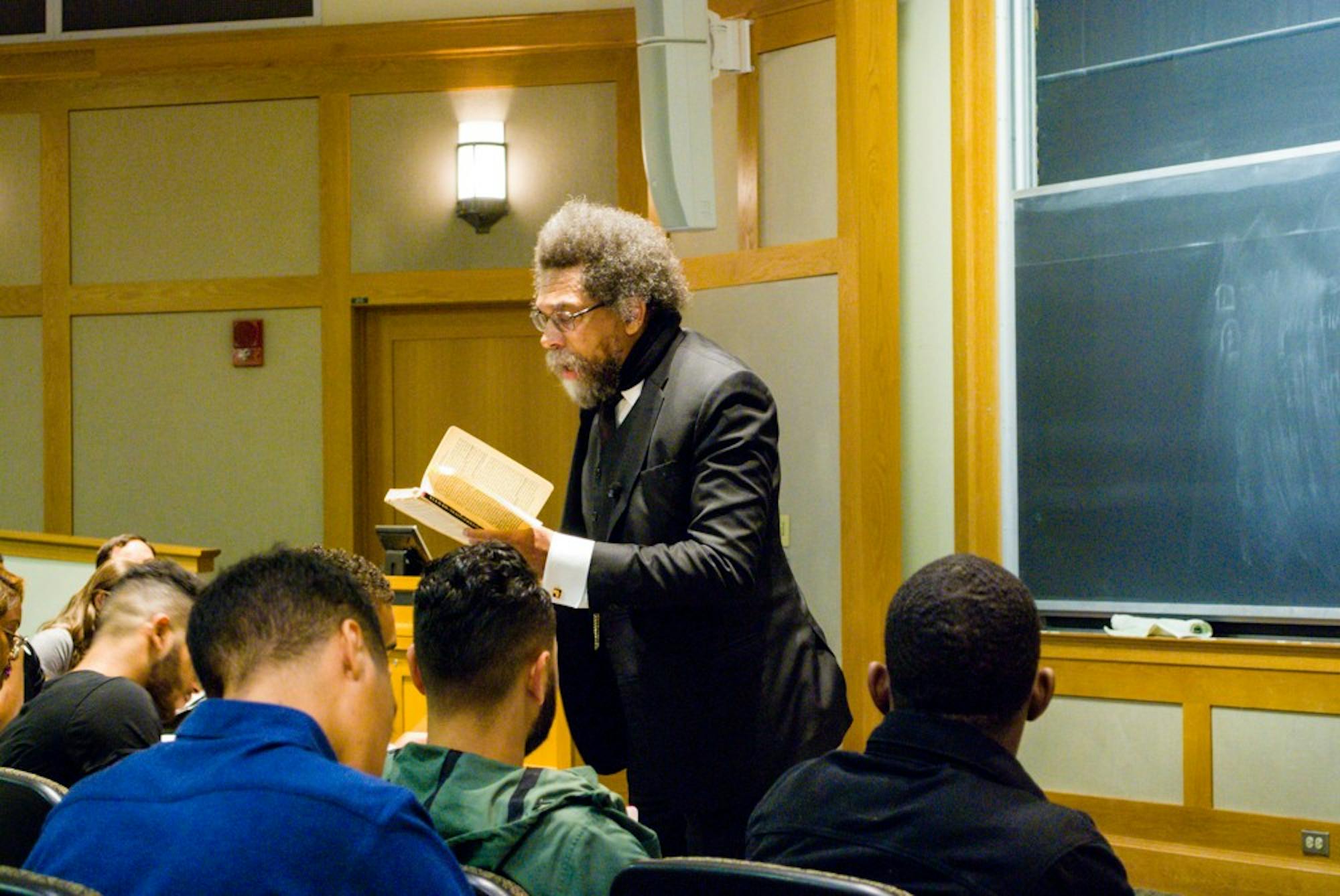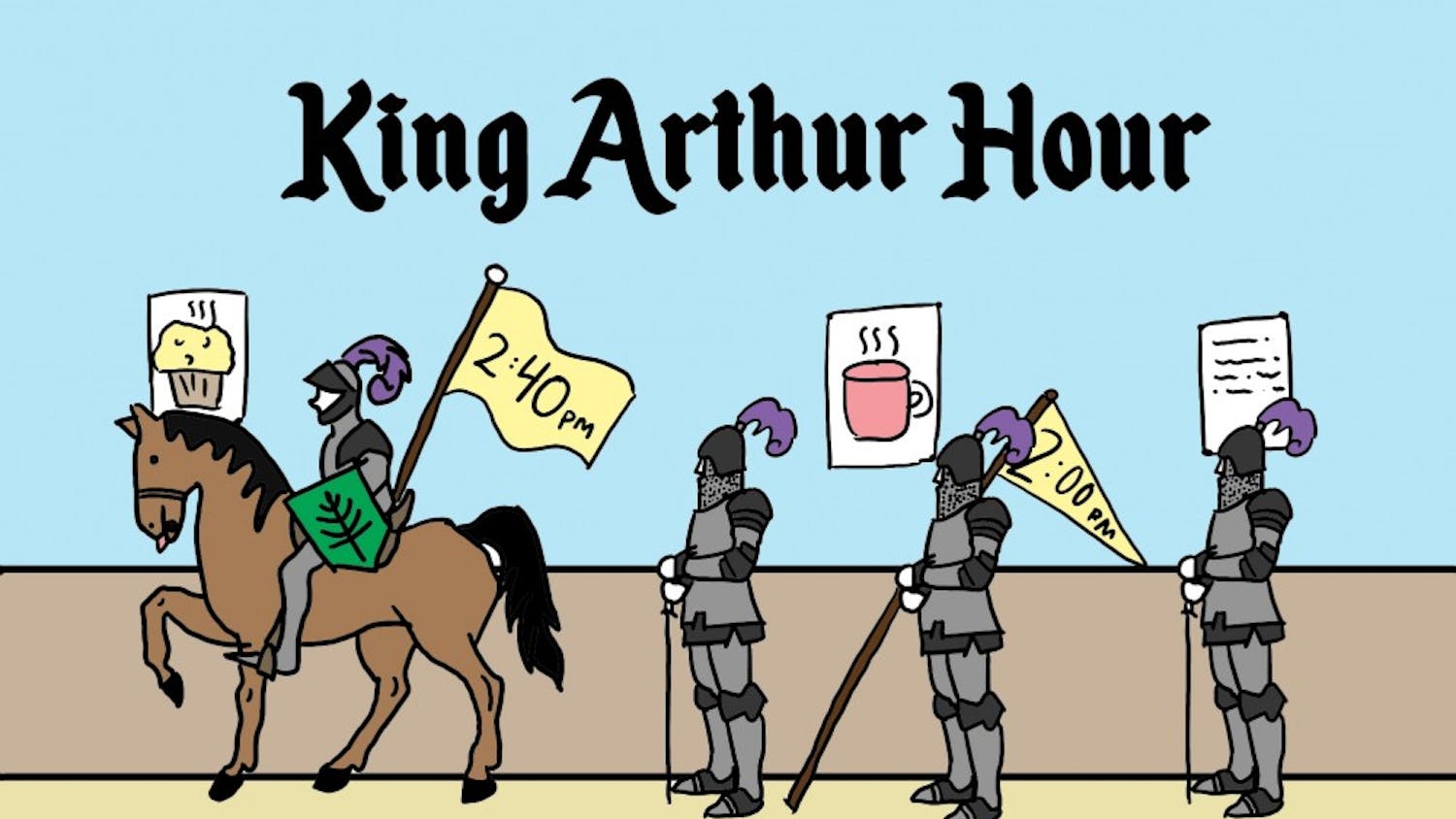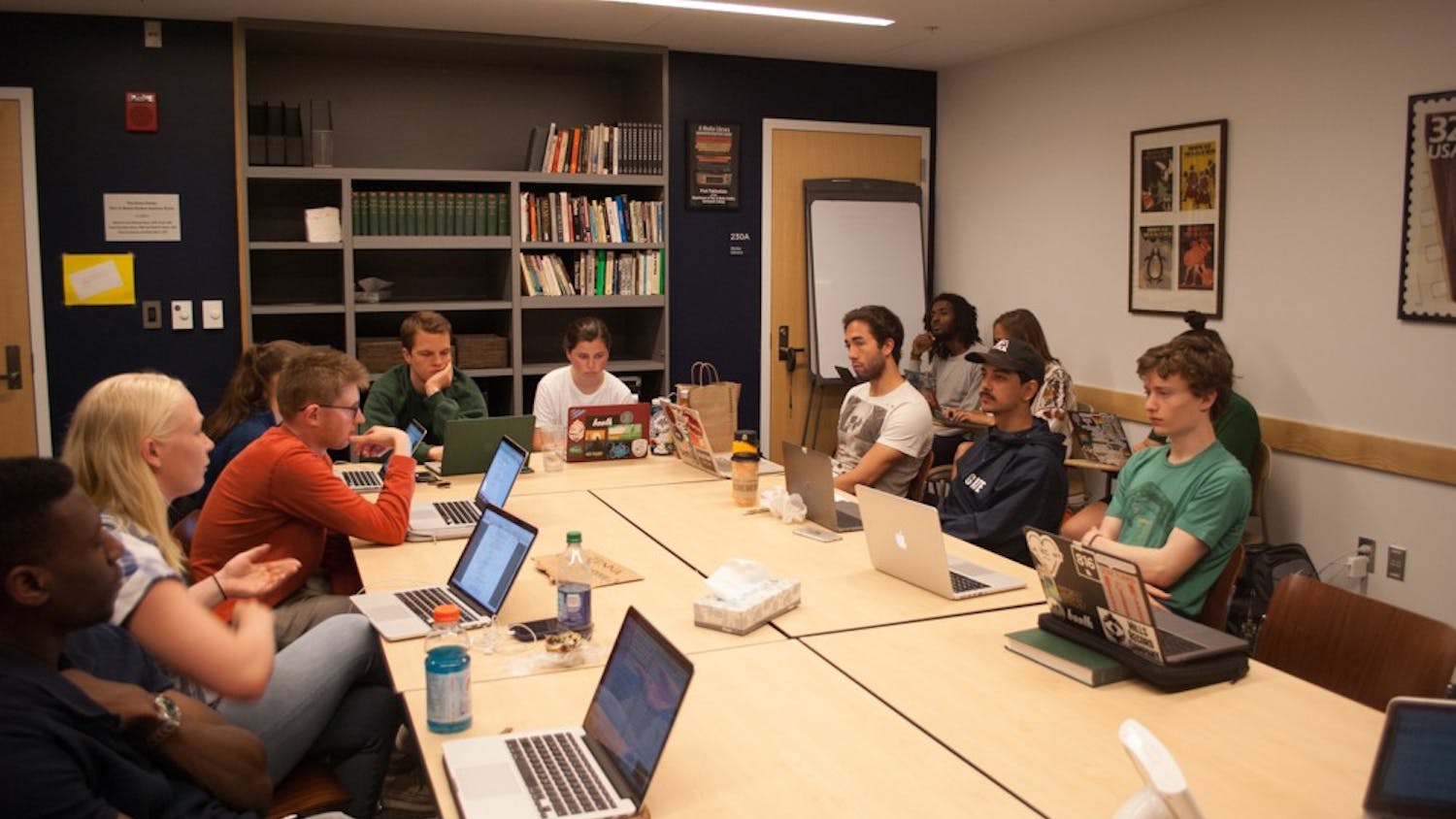This Monday afternoon, Cornel West — Harvard University professor, political activist, public intellectual and social critic — stood outside Filene Auditorium and chatted with a student about 20th-century, African-American identity in the United States. Fifteen minutes later, nearly a hundred students flocked into the auditorium to attend West’s class — titled ENGL 53.43, “Race and Modernity.”
This fall, West is teaching as a temporary faculty member at Dartmouth in the English department. His course examines the themes of race and identity among works of three African-American intellectuals: James Baldwin, Lorraine Hansberry and W. E. B. Du Bois. The class meets for three hours every Monday during the 3A and 3AX period.
Before this fall, West had come to Dartmouth several times both to teach and speak. In 2017, associate dean for the faculty of arts and humanities and English professor Barbara Will invited West to give a speech as part of a lecture series titled “Why the Humanities Matter in the 21st Century.”
“I invited him to give a lecture two years ago, and there were about six hundred people in the audience,” Will explained. “It was out of that I decided it would be terrific to bring him back to teach a class.”
In the summer of 2017, West was invited back to campus to teach a course called “The Historical Philosophy of W.E.B. Du Bois.” Last summer, he also spoke at the Race Matters@25 conference in celebration of the 25th anniversary of his book “Race Matters.”
This week, West started his lecture by reviewing the four legacies of Du Bois covered in the previous class and presenting a short biography of Du Bois’ early life. He then gave a detailed analysis of the first few chapters of Du Bois’ seminal work, “The Souls of Black Folk,” exploring the themes of victimization, alienation and suppression.
West connected Du Bois’ work to the works of a wide range of philosophers, such as Socrates, Goethe, Kafka and Nietzsche, as well as elements of today’s popular culture, like hip-hop and “swagger.” His literary interpretations were often intertwined with personal anecdotes and deliberate digressions, causing the audience to fall into alternating periods of laughter and silence.
Will expressed her appreciation for West’s teaching style and method of close reading.
“The reason his teaching is so powerful is that he can speak to anybody, wherever they are in their lives, and talk about really essential issues — about what it means to be human, what it means to be American, what it means to have an identity, race, gender,” Will said. “He often takes a paragraph and goes through it very closely, so you can see all of the nuances. It may mean you don’t always get to cover everything, but you do get that in-depth kind of connection to the text.”
English professor James Dobson is co-teaching the class with West. Dobson explained that the reasons they chose those particular African-American writers are because their works cover a wide variety of literary genres — including plays, essays and autobiographical reflections — and because they represent three different time periods.
“From the late 19th century to the 20th century, [it is] an unfolding process to track the evolution of these twinge problems of race and modernity,” Dobson said.
West also expressed high respect for the three authors, adding that it was difficult to find “three more towering figures” than Baldwin, Du Bois and Hansberry.
Natan Santos ’21 said he thoroughly appreciates West’s lecture style.
“[West’s lecture had] a constant flow of imagery [and context] — all tied into one,” Santos said. “It’s really engaging.”
Arabella McGowan ’23 said that West’s class was unlike anything she’d taken in the past.
“He’s just a very powerful speaker,” McGowan said.
During the second half of the class, six student responses to “The Souls of Black Folk” were selected and discussed together, touching upon the influence of Jerusalem, American Romanticism, Athens and European Enlightenment on Du Bois’ work, as well as the contemporary significance of Du Bois’ insights about African-American identity in 20th-century U.S.
Elizabeth Whiting ’21, a student whose response was selected, analyzed the influence of Jerusalem and American Romanticism on Du Bois’ work. As an English major, she said she chose this course in part because the topic was related to a class she took during her sophomore summer.
When asked why he decided to come back to Dartmouth to teach a course again, West said, he has had a great time teaching at the College.
“Students are hungry for truth, for beauty, for goodness, and I love to be part of that hunger,” West said.




